Brexit: Scottish independence 'simplest EU option'
- Published
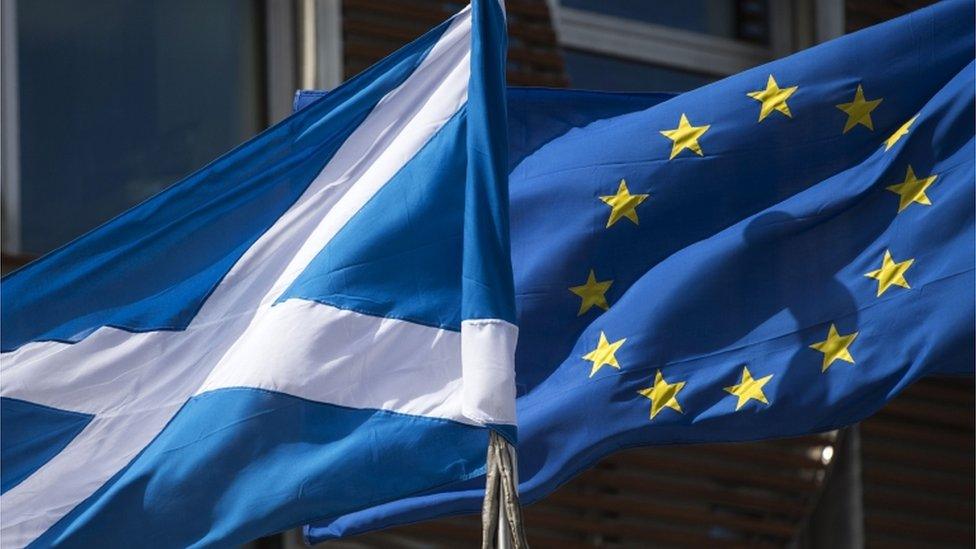
Scotland was one of the few UK areas to vote in favour of remaining in the EU
Independence would be the "simplest and most obvious way" for Scotland to remain in the EU, MSPs have heard.
The European and External Affairs Committee heard evidence from four experts on the possible options for Scotland in Europe.
There was broad consensus among the experts that it would be extremely difficult for Scotland to be a member of both the UK and the EU after Brexit.
And they agreed the EU currently had "goodwill" towards Scotland.
Last week's referendum saw Scotland vote by 62% to 38% in favour of remaining in the EU - but it faces having to leave the union after the UK as a whole voted in favour of Brexit.
First Minister Nicola Sturgeon held a series of meetings with senior EU officials after pledging to do all she can to protect Scotland's position in Europe.
She has said she will explore all of the possible options - but has raised the prospect of a second independence referendum if it was felt to be the best way of ensuring Scotland's access to the single market.
The external affairs committee asked a panel of expert witnesses what they felt the best scenario was to protect Scotland's relationship with the EU.
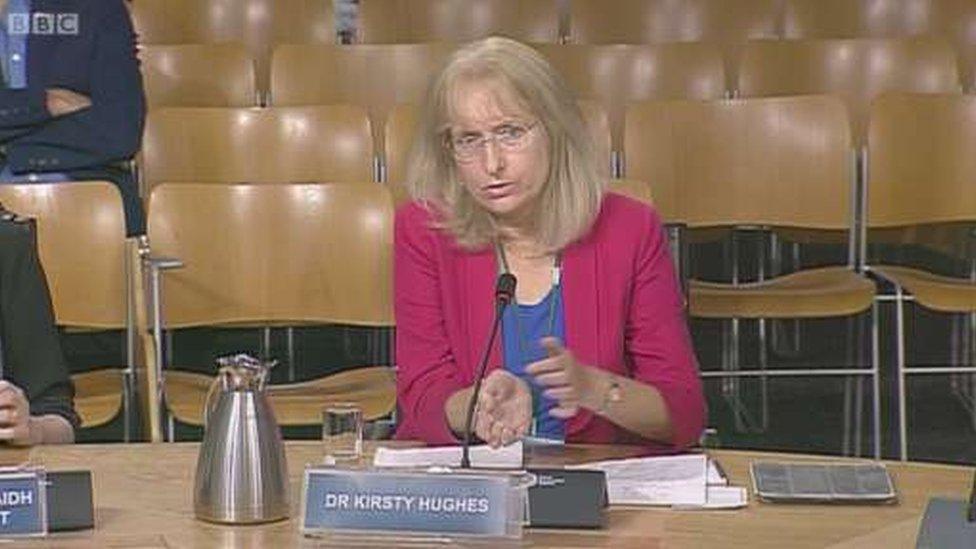
Dr Kirsty Hughes of Friends of Europe responded by saying that Brexit had in her view caused "extraordinary damage" to the UK, Europe and the wider world.
She said that in terms of preserving Scotland's EU status, "the simplest and most obvious way would be to be an independent state and transition in and stay in the EU".
She said any other options would depend to a large extent on the deal negotiated by the UK as a whole during its withdrawal negotiations.
'Hard to imagine'
Dr Hughes added: "It is worth looking into but it would be very hard for me at this moment to imagine how Scotland could be in the UK and still in the EU rather than just still in the UK or still in the single market.
"You are meant to be a state to have a seat in the council of ministers, not a sub-state, and I don't see at the moment any way around that."
She said there had been "scaremongering" from the EU ahead of the independence referendum in 2014, but she believed that the situation was now different.
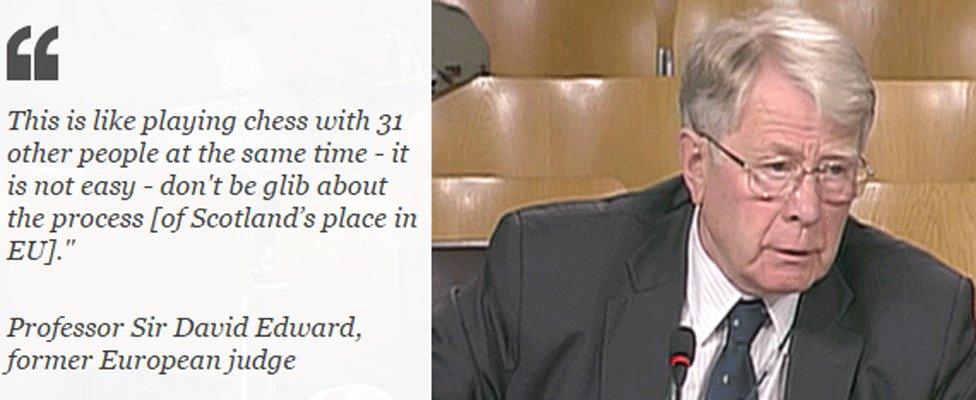
Dr Hughes said it would be "logical" for any independence referendum to be held in the summer of next year to ensure it was done before the UK completed its negotiations and left the EU.
But she acknowledged that whether or not to hold a referendum was "obviously a very big political judgement".
And she warned the EU "does not want a mini-UK" and said Scotland is unlikely to keep the UK's "awkward squad" opt-outs of the euro, justice and home affairs and the UK budget rebate.
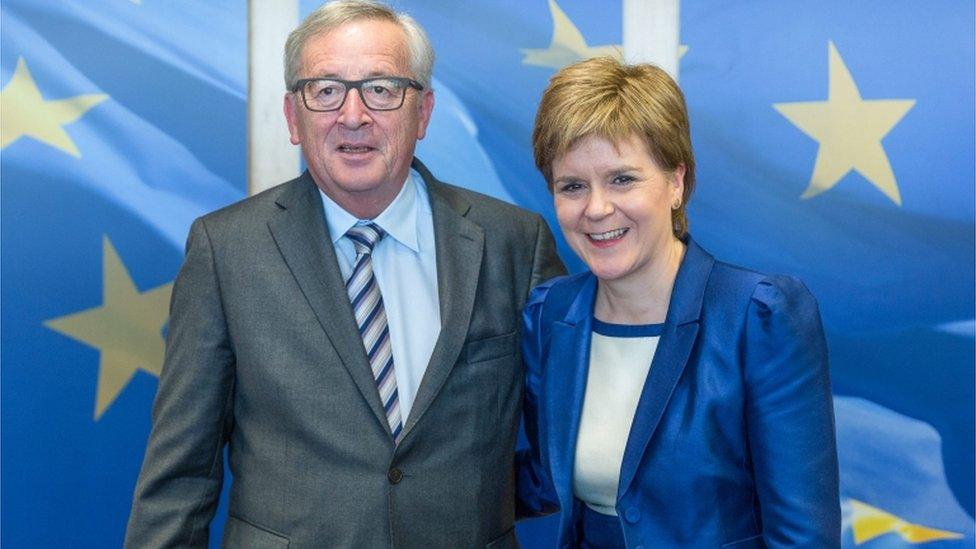
The experts praised Ms Sturgeon's visit to Brussels on Wednesday, when she met officials including European Commission President Jean-Claude Juncker
Prof Sionaidh Douglas-Scott of the Queen Mary School of Law at the University of London agreed it was very difficult to see how one part of the UK could be in the EU and not the other parts.
She said: "Legally there are precedents. I think politically it is another question because it would be a matter not only of negotiating with the other EU states but also with the UK to a certain amount as well."
But she said there were also political difficulties with the independence option as "there are some states in the EU that are not so happy with that", particularly Spain with is concerned about a strong pro-independence movement in Catalonia.
Former European Court of Justice judge Prof Sir David Edward said none of the options for either Scotland or the UK could be adopted without the consent of other EU member states.
But he added: "It doesn't seem to me possible to envisage a position of Scotland remaining part of the UK but having a separate relationship in relation to the single market."
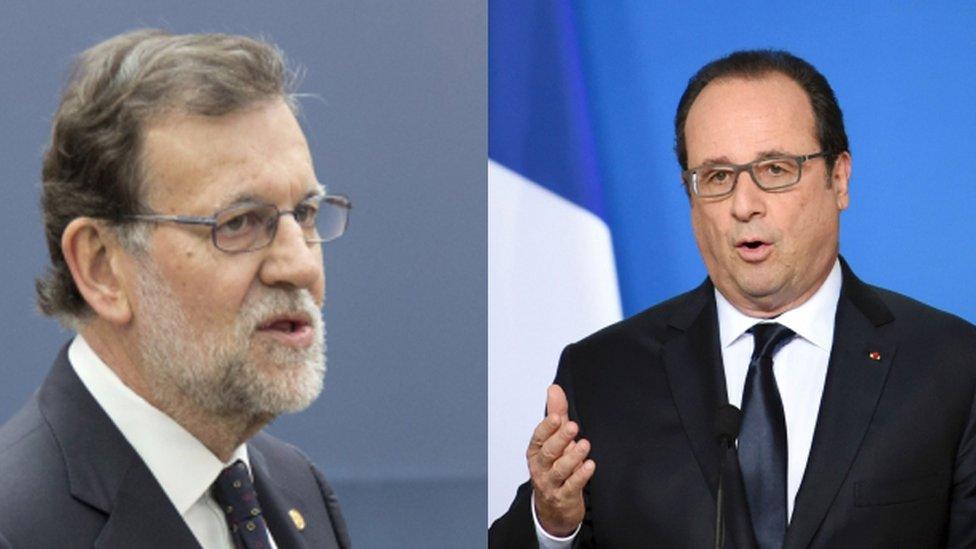
Spanish acting prime minister Mariano Rajoy and French president Francois Hollande are opposed to the EU holding talks with Scotland ahead of Brexit
Sir David said he believed it would be worth exploring whether Scotland would be better to join the European Economic Area and the European Free Trade Association rather than the EU, which he said would offer full access to the single market but not all of the commitments.
He added: "It seems to me that Scotland makes quite a good fit with Iceland and Norway."
Prof Drew Scott of the University of Edinburgh posed the question: "Why could Scotland not be the successor state? That would mean the rest of the UK would leave but Scotland would retain its seat and inherit the successor state status of the UK."
He said this scenario was "not impossible" if Scotland did vote in favour of independence in any referendum.